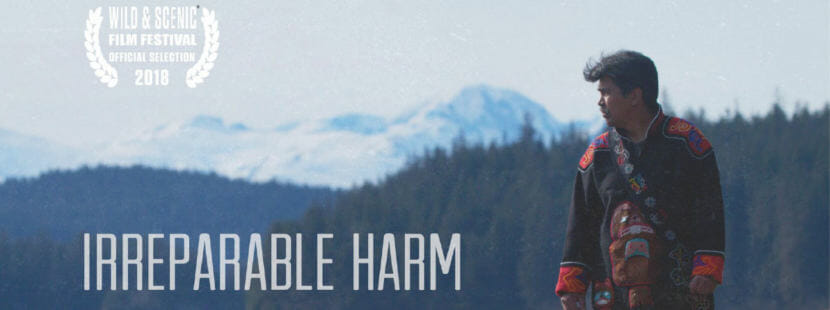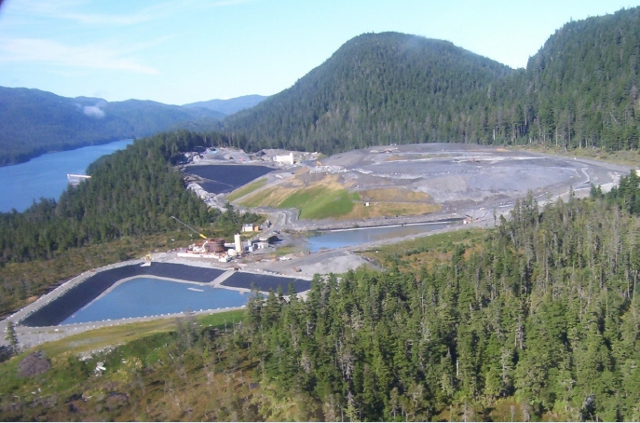
Hecla Mining Co. tried to put the kibosh on a Southeast environmental group’s documentary by asserting copyright claims.
Mike Satre, head of community relations for the Greens Creek Mine, is featured in the short documentary “Irreparable Harm.”
“We have the ability to lease monument lands to support mining activities as long as we are not causing irreparable harm to the monument and the monument values,” Satre said in an interview that’s part of the 20-minute film.
The film was produced by Southeast Alaska Conservation Council, or SEACC, a critic of Hecla’s environmental practices in the metals mine on Admiralty Island.
“To Hecla’s credit they made Mike Satre available and he did this interview and we’re glad that he did,” said Meredith Trainor, SEACC’s executive director. “I think it’s important to have both sides of the issue represented in a film like this.”
Following the short film’s January premier in Angoon, the group received a cease-and-desist letter from the Chicago lawfirm K&L Gates on behalf of Hecla.
“When we received the copyright letter, at first we thought, well, maybe this is some sort of baseline copyright thing that they have to do that’s obligatory. But in a follow-up letter we got, it became very clear that the intent was to stop us from showing this film. And I think that’s where we were, like, ‘Well — no.’ Because it accurately represents what’s happened in this inlet and the way that it’s affected the community of Angoon.”
The Feb. 28 letter notes that the film uses footage from one of Hecla’s promotional videos posted to YouTube in 2016.
“What it comes down to is I think it’s something like 28 seconds of film that Hecla produced that’s focused on the day in the life of a miner,” she said. “And the filmmaker that we worked with sampled from that, which is something that’s covered by fair use policy, if you will, in terms of documentary filmmaking.”

Redistributing copyrighted material can carry stiff penalties. Up to a $150,000 fine for each copyrighted work. But there are allowances in the law to use excerpts under the fair use doctrine. Educational, artistic and journalistic works do it all the time.
“This was a classic case of a documentary commenting on a mine and using some of a promotional video as part of that documentary,” said Daniel Nazer, a staff attorney with the Electronic Frontier Foundation, a digital rights group based in San Francisco.
He wrote a letter to Hecla’s attorney, arguing that the practical consequence of its demand was to draw even more attention to the film and make the mining company appear unwilling to accept criticism. He closed by urging Hecla’s attorney to drop the claim.
The demand was dropped via email this month. It said the company had made the decision for “business reasons” but warned it could take action if the group used additional footage in the future.
Hecla Vice President for External Affairs Luke Russell said the company is asserting its legal rights.
“SEACC had used Hecla footage without credit or consent and we were simply protecting our copyrighted material,” Russell said in a brief interview.
EFF’s attorney said the foundation’s pro bono legal assistance to SEACC has nothing to do with the mining debate.
“We’re really standing for a general principle that you can comment and create documentaries like this and Hecla itself would have fair use rights if it wanted to criticize this documentary,” Nazer said. “That’s the marketplace of ideas in America and something that’s guaranteed by the First Amendment.”
The dispute hasn’t affected distribution of the documentary. “Irreparable Harm” is currently touring with the Wild & Scenic Film Festival with three screenings in three states this month.
Editor’s note: Hecla contributes matching funds to KTOO’s membership program.
